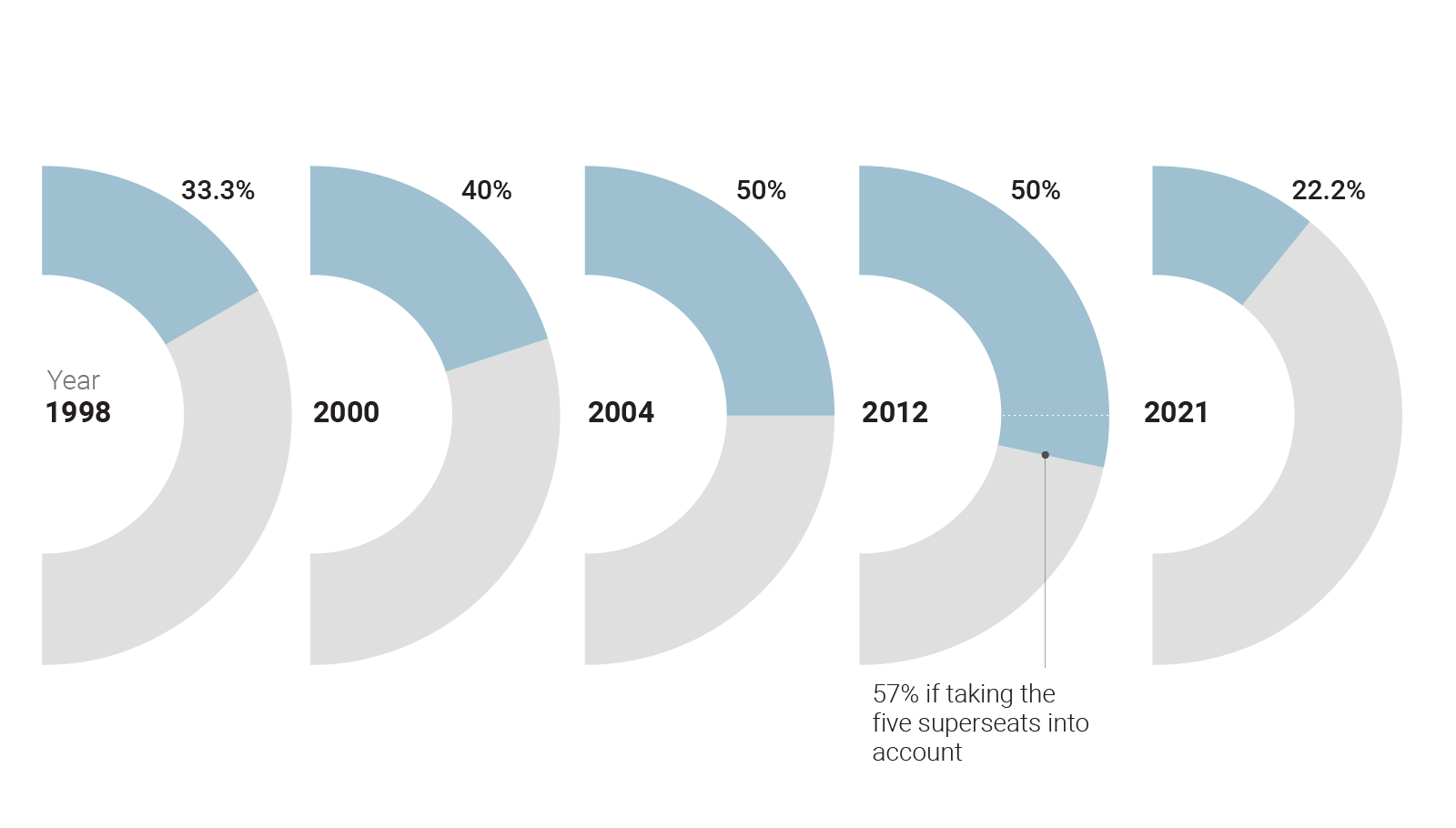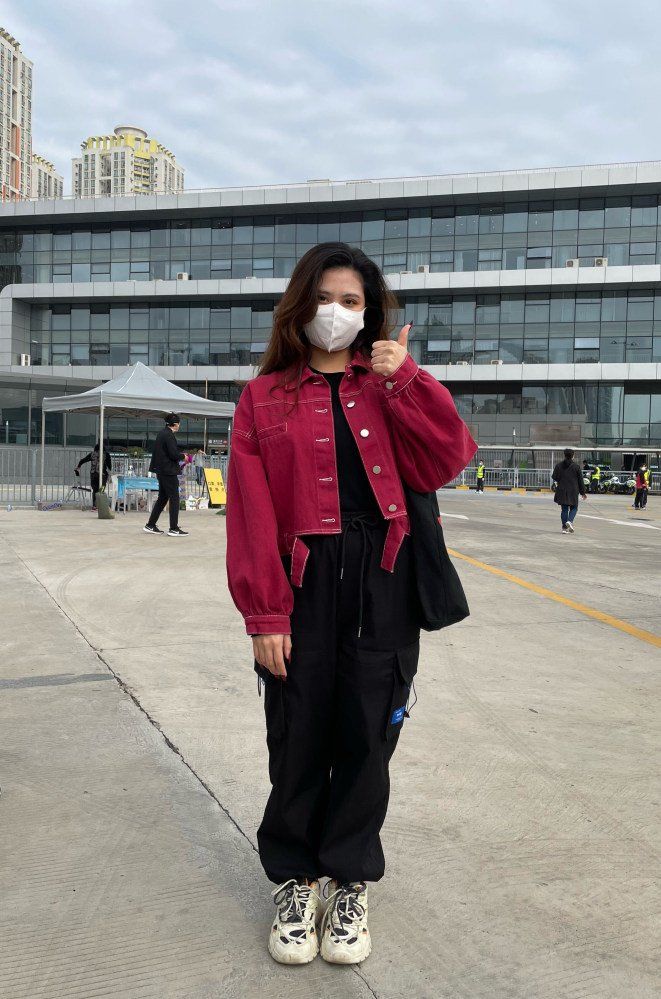Hong Kong News

Border stations make voting easy for Hongkongers but critics say scrutiny missing
Hongkongers living in mainland China were pleased they could vote in Sunday’s Legislative Council election at polling stations set up at three land border checkpoints, although some critics said the special arrangement lacked public scrutiny.
Some drove about 135km (84 miles) from the Guangdong capital Guangzhou to cast their ballots, while others were ferried by coach to checkpoints on the Shenzhen side of the border.
They had to cross briefly to the Hong Kong side to vote, before returning immediately to the mainland.
A total of 22,130 Hongkongers living across the border registered to vote at the designated checkpoints of Heung Yuen Wai, Lo Wu and Lok Ma Chau Spur Line.
The one-off arrangement, announced only weeks ago, was prompted by the coronavirus pandemic which has left many Hongkongers stuck on the mainland because of ongoing travel restrictions.
By 4.30pm on Sunday, the three border polling stations recorded an overall turnout rate of about 64 per cent. There were 3,800 votes cast in Heung Yuen Wai, 4,217 in Lo Wu, and 6,086 at the Lok Ma Chau Spur Line polling station, according to Electoral Affairs Commission chairman Justice Barnabas Fung Wah.
Constitutional affairs minister Erick Tsang Kwok-wai said he was pleased with the operations at the border polling stations.
The arrangement sparked some controversy as critics pointed out Hong Kong officials had no way to regulate election activities done outside the city, and candidates also might not have been able to reach out to voters across the border.
But most voters interviewed by the Post at these stations found the arrangements helpful.
Peter Yuen, 33, a Hong Kong-born marketing graduate based in Guangzhou, called the border polling stations a “very thoughtful, breakthrough innovation” during the pandemic.
“Previously, we had to make a special trip back to Hong Kong to vote, which required more time,” he said.
Yuen’s focus as a voter on the mainland was whether candidates would promote Hong Kong’s integration into the Greater Bay Area, Beijing’s ambitious plan to connect the city, Macau and nine Guangdong cities into an economic powerhouse.
He said he hoped the new lawmakers would do more for Hongkongers on the mainland, to represent their interests and make their lives better.
Yuen, who runs a snack delivery start-up, drove about 1½ hours from Guangzhou to vote at the Lok Ma Chau Spur Line checkpoint, which is known as Futian Port on the Shenzhen side.

He got there at about 2pm, and voting proved to be a breeze.
“There were not many voters, and there was no line to go through customs or to vote. Very fast,” he said.
Another voter, Tiffany Chan, 26, who also drove to Shenzhen from Guangzhou, said: “The voting process went smoothly. There were many staff members, almost as many as the voters.”
She works for an organisation helping Hong Kong youth to start businesses in the bay area.
“I hope the candidate I voted for will speak on our behalf after understanding what we think, and won’t be someone who doesn’t know us and doesn’t know what we want, but just does it for a political show,” said Chan, who cast her vote for the Hong Kong Island West geographical constituency.
 Tiffany Chan travelled from Guangzhou to cast her ballot.
Tiffany Chan travelled from Guangzhou to cast her ballot.
Referring to the social unrest that rocked the city in 2019 and led to major changes, including the overhaul of the electoral system, she said: “Hong Kong was in chaos for a long time. I hope the new legislators can work well together and really work for the benefit of us citizens.”
Post reporters who went to the Futian Port land crossing on Sunday morning saw coaches ferrying groups of voters to the checkpoint.
The Hong Kong Chamber of Commerce in Guangdong arranged some of the coaches for voters from the city, but it declined to comment.
Throughout the day, there was a heavy police presence outside Futian Port. Volunteers in red vests were also there to help voters.
The border arrangement was only for those registered to vote in the geographical and functional constituencies, which returned 20 and 30 lawmakers respectively to the new 90-seat Legco.
The biggest group of 40 lawmakers comes from the powerful new Election Committee constituency. The 1,448 members of the Election Committee voted for them at a polling station at the Hong Kong Convention and Exhibition Centre in Wan Chai.
To comply with election laws which state that ballots must be cast within the city, those who voted at the border had to cross briefly into Hong Kong to vote.
Under a “closed-loop arrangement”, they then returned immediately to the mainland, and were spared having to undergo quarantine.
But because the stations were at border crossings, members of the public and the media could not observe vote counting there.
The votes cast for geographical constituencies were due to be tallied at the border stations, which would be designated counting centres at the close of polls.
The ballot boxes for functional constituency votes were due to be sent to the Hong Kong Convention and Exhibition Centre for counting.
The counting of votes at the three border polling stations was to be broadcast live on RTHK TV32 channel and the website of the government’s Information Services Department.











